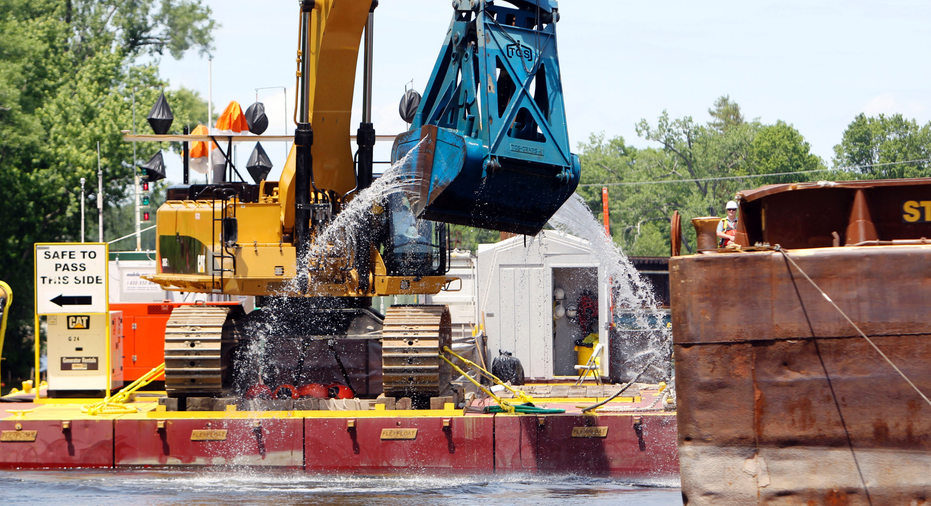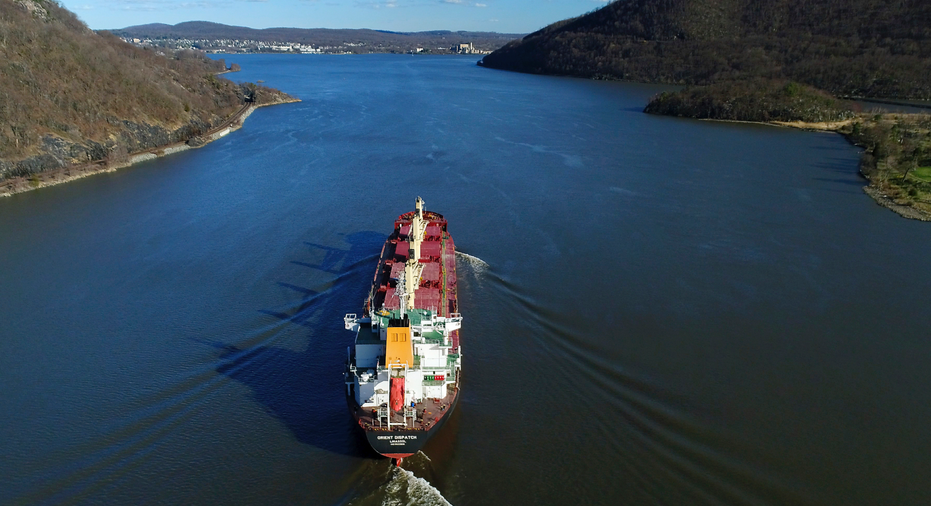EPA won't make GE restart Hudson dredging for now
FILE - In this June 10, 2011 file photo, crews dredge the Hudson River in Fort Edward, N.Y. The work is part of a project on the upper-Hudson to clean up PCBs released by General Electric decades ago. The Environmental Protection Agency is poised to make an announcement Thursday, April 11, 2019, on GE's $1.7 billion Hudson River cleanup. (AP Photo/Mike Groll, File)
ALBANY, N.Y. – The Environmental Protection Agency declined for now to make General Electric restart dredging in the Hudson River, triggering a wave of condemnation Thursday from New York officials and environmentalists who say contaminant levels from its industrial pollution remain too high.
The EPA issued a certificate to Boston-based GE saying that it has completed its remedial action under the federal Superfund program. Critics of the cleanup wanted the EPA to withhold the certificate and to demand further dredging. EPA Regional Administrator Peter Lopez said more time and testing are needed to fully assess the $1.7 billion cleanup that GE has done, and he stressed that the company can still be compelled in the coming decades to do more work, including additional dredging.
"GE is not off the hook," Lopez told reporters during a conference call. "If new information comes in that causes EPA to conclude that more work is needed to protect public health and the environment, we can and will require GE to take that action."
Gov. Andrew Cuomo and state Attorney General Letitia James, both Democrats, promptly announced they intend to sue the EPA over its decision. They claim levels of the contaminating polychlorinated biphenyls, or PCBs, remain unacceptably high in the river sediment and in fish. Scenic Hudson and Riverkeeper, two environmental groups lobbying for additional dredging, said they would support litigation.
"Since the EPA has failed to hold GE accountable for fulfilling its obligation to restore the river, New York state will take any action necessary to protect our waterways and that includes suing the EPA to demand a full and complete remediation,'" Cuomo said in a written news release. "Anything less is unacceptable."
Cuomo accused the Republican Trump Administration of putting corporations' interests ahead of public health and the environment. EPA officials said their decision was guided by Superfund law and science.
The EPA said in a "five-year review" of the river released Friday that there is not enough testing data on fish, water and sediment yet to determine if the cleanup will succeed in its goal of protecting human health and the environment. Lopez said that will take more time and monitoring before a conclusion could be reached.
The review found some signs of progress in removing highly contaminated sediment, though it found three spots in the upper river with slightly elevated levels of PCBs.
Until the mid-1970s, GE factories discharged more than 1 million pounds (450,000 kilograms) of PCBs into the river. The probable carcinogen, used as coolants and lubricants in electrical equipment, was banned in 1977.
GE said the EPA's decision confirms the success of the project.
"GE will continue to collect environmental data to assess ongoing improvements in river conditions and to work closely with EPA, New York State, and local communities on other Hudson environmental projects," the company said in a written statement.





















